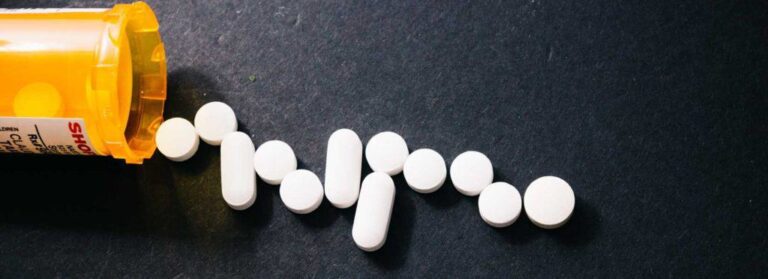Which Generation Struggles the Most with Meth Addiction?
When you think about genetics, you probably think about your personal heritage and the physical traits and characteristics passed down from generation to generation. Mental health and genetic susceptibility to substance abuse are also heritable traits and need to be taken seriously. Generational struggles are often passed down because of reasons related to both nature and nurture.
Environment and Substance Abuse
The environment you grow up in shapes the person you become. The same goes for the community you grow up in, shared values, and your peer group. The phrase “zipcode destiny” refers to the increased likelihood for those who grow up in different zip codes in the United States to have certain outcomes. Further, the concept suggests that those born into low-income communities are less likely to have the same opportunities as those in middle or upper-income communities and less likely to be presented with chances to climb the social ladder.
Disenfranchised regions in the United States including areas that are more highly populated by minority groups and are less racially diverse are more likely to have higher rates of poverty and substance abuse. This is not a chicken or egg situation. Poverty is a primary reason why people turn to substance abuse. Individuals who live in impoverished communities lack equal access to quality food, quality education, and good jobs.
Signs and Symptoms of Meth Abuse
There are many signs of meth abuse and addiction. Common signs of meth abuse include:
- Increased paranoia
- Increased secretiveness
- Unusual bursts of energy
- Awake at odd hours
- Extreme loss of appetite
- Drastic loss of weight
- Sunken-eyes
- Sores or scars from skin-picking
- Burn marks on lips or fingers
- Extreme moods swings
- Increased aggression
- Dental issues (aka. “meth mouth”)
If you have noticed signs that someone you care about is abusing meth, reach out today for assistance. Early intervention is always best, but it’s important to remember that it’s never too late to find lasting recovery.
The Value of Treatment
The stress and anxiety associated with poverty lead people to seek an escape. Substance abuse provides both an escape and acts as a coping mechanism. Those who live in disenfranchised communities may not have been well-educated about the risks associated with substance abuse or how to develop healthy habits and positive coping mechanisms. Educational tools like this are available in substance abuse treatment programs like the ones available at Oasis Recovery
Our professional team of medical doctors and mental health therapists treat our clients with the dignity and respect they deserve. We don’t talk down to people who have already been treated unfairly by society. We are here to help you learn the tools you need to get yourself back on your feet and find successful ways to lead a sober life.
Sober living can be difficult. Learning healthy and positive coping mechanisms while in treatment provides you with the knowledge you need to manage high-risk triggers in real-world situations.
Generational Substance Abuse and Addiction
If you grow up in a household or a community in which substance abuse and addiction is normalized then you are more likely to become a victim of addiction.
Methamphetamine (“meth”) addiction is especially prominent in rural and impoverished communities because it is cheap to produce, inexpensive to buy, and can even be made at home.
Meth has ravaged communities and destroyed the lives of individuals, their families, and their relationships with loved ones and friends. When you think of someone who might abuse meth, you probably bring to mind a number of stereotypes. Stereotypes exist because they contain a grain of truth. That being said, it’s important to remember that drug abuse and addiction do not discriminate. Famous and wealthy individuals have been known to have problems with drugs like crack cocaine and meth.
A few examples of celebrities who have been addicted to meth include Lindsay Lohan, Robert Downey Jr, Truman Capote, Andre Agassi, Yasmine Bleeth, Fergie, Eddie Van Halen, Britney Spears, Amy Winehouse, Nick Stahl, Rufus Wainwright, and Tom Sizemore.
Celebrities, like everyday people, can easily get roped in by the cycle of abuse. This is especially true when it comes to a highly addictive substance like meth.
The Demographics of Generational Meth Abuse and Addiction
Young people ages 18-26 have the highest rate of meth abuse. Young users are predominantly white and male. Rates of abuse are higher on the west coast of the U.S. than on the east coast, however, the midwest and south are known to have high rates as well. The east coast is believed to have somewhat lower rates but that does not mean individuals are not susceptible based on socio-economic factors as well as the environment and community in which they live.
Meth, also commonly referred to as crystal meth, glass, ice, and other slang terms, is often smoked but can also be injected intravenously. IV use of drugs is generally considered the most addictive as the immediacy of effects and short-lived “high” results in the temptation to binge the drug in order to prolong the euphoric effects and avoid the “crash” associated with amphetamine withdrawal.
Meth Mental Health
Meth abuse is associated with mental health issues. Studies have indicated that upwards of 50% of those who abuse meth have a co-occurring mental health disorder. Too often, mental health issues remain undiagnosed.
Those who have a meth addiction likely need a dual diagnosis. Mental health counselors in a treatment program such as the one offered by Oasis Recovery can provide clients with a dual diagnosis. In treatment, clients work with medical doctors and mental health practitioners to develop a treatment plan. Proper diagnosis is often the first step. Once a person has been properly diagnosed and goes through detox, they can then begin the process of recovery.
Recovery is a lifelong battle to maintain a healthy and positive lifestyle. Aftercare programs can help provide clients with information about local anonymous groups like NA or a 12 step program. Anonymous programs, much like group therapy, provide great opportunities to engage with individuals who have had similar life experiences. This is an opportunity to share your story and learn from others as well as potentially find a sober sponsor and increase your safety net.
Learning effective relapse prevention techniques and healthy coping mechanisms for managing high-risk triggers is an essential part of maintaining lasting sobriety. To learn more about addiction recovery programs, reach out and speak with a specialist today. We look forward to helping you begin your path towards a brighter future.











